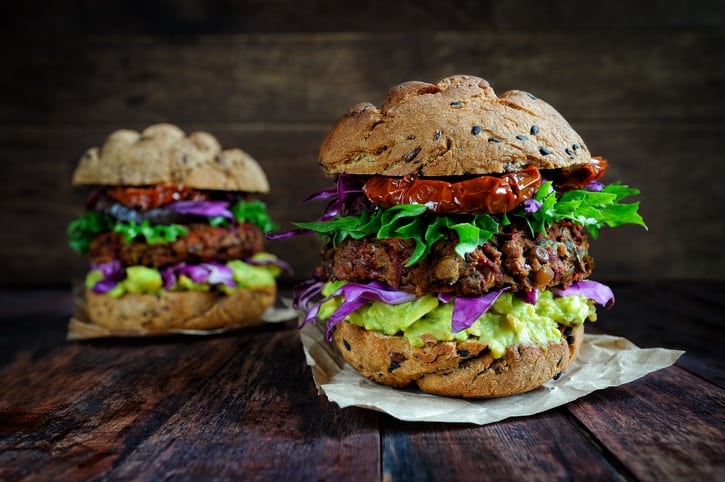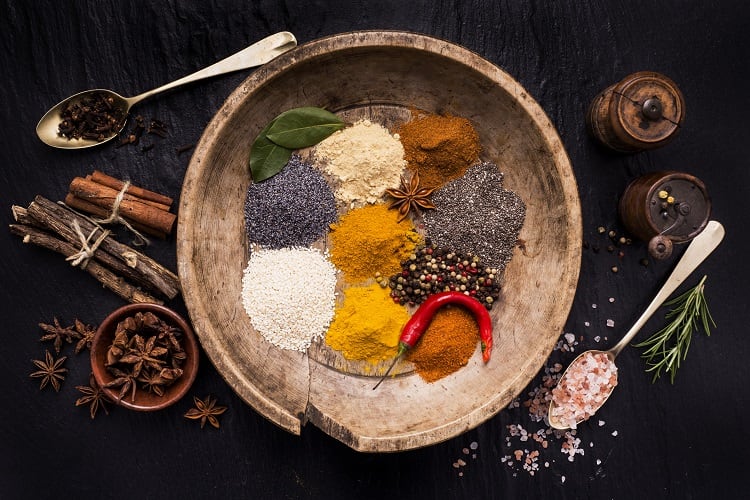Two core consumer trends have come to dominate the food industry agenda – health and sustainability.
Awareness around these issues has shot up in recent years. In the UK, for example, the health and wellness market has grown significantly. According to market analyst Statista, the category’s retail value in the country increased from €20.5bn in 2015 to almost €23bn in 2018.
Meanwhile, Ethical Consumer’s 2018 Markets Report demonstrates consumers are increasingly putting ethical considerations at the heart of purchase decisions.
The organisation, which supports ethical consumerism, has been tracking UK consumer attitudes to consumption since 1999. Over the last 20 years, the issue of whether food has been produced in an environmentally sustainable way has come to the fore. Ethically produced food and beverages saw a 16.3% increase in sales in 2017, Ethical Consumer claimed.
The shift towards foods that are perceived as healthy and sustainable is likely to continue to gather steam, EY’s global consumer industries advisory lead Rob Holston believes.
“With increasing environmental concerns among consumers, sustainability is vital for consumer-facing businesses. Consumers will continue to look for products that meet both health and sustainability requirements,” he predicted.
Plant-based and packaging a high priority

Categories that appear to tick both boxes are set to thrive. Surging interest in plant-based products is a case in point. In fact, Holston suggests the biggest near-term challenge for this sector will be reaching the scale necessary to meet market requirements.
“Plant-based meat substitutes will continue to gain acceptability and extend beyond burgers and beef products to fish and pork. The challenge for the sector is how to scale-up its infrastructure to satisfy demand.”
Other areas set to be shaken-up by the push for healthy people and planet include ingredient sourcing and plastic packaging.
“Packaging and ingredients provenance will become as important as the product. Some of the most world’s biggest fast-moving consumer goods companies have already committed to deadlines to achieve 100% recyclable packaging and manufacturers and retailers need to work harder to develop sustainable packaging solutions and take a stand against plastic.”
Earlier this month, Nestlé – the world’s largest food manufacturer – said it wants to ‘lead the shift’ from virgin plastics with an investment of up to CHF2bn (€1.9bn).
Coca-Cola European Partners has pledged to collect 100% of packaging and use 50% recycled plastic in PET bottles in Western Europe by 2025.
PepsiCo is aiming to use 50% recycled plastic in its bottles across the European Union by 2030: up from 13% today and with an interim target of 45% by 2025.
From reformulation to personalisation

On health, Holston expects ‘the war on sugar’ to be a big focus as consumers seek ways to limit their intake or find healthier alternatives.
“This is prompting producers to reformulate thousands of products, for example by using cacao plant fruit pulp, traditionally a waste product, to sweeten chocolate,” he suggested.
“Consumer health apps such as Yuka are fuelling this trend: the number one health app in France scores food items based on the healthiness of ingredients and recommends better alternatives through a barcode scan.”
Reformulation efforts offer broad-brushstroke public health benefits to a wide consumer base. But as a health trend, it should be seen as an evolution more than a revolution for established categories.
In contrast, personalised nutrition has the potential to ‘create new category fundamentals’.
Holston elaborated: “Personalised diets and products based on an individual’s DNA could become more widespread as ‘healthy’ will not mean the same thing to all.
“Developments in technology could lead to the development of more functional foods. In the future, food will help consumers to improve their bone, joint and brain health, as well as proactively address other age-related health concerns.”
A new front in F&B competition: Technology
The fast pace of technological developments is increasingly coming to shape the face of food industry innovation – as well as consumer expectations. This places pressure on long-established supply chains.
Well-known food brands are also increasingly facing new competition from sometimes unexpected quarters.
“Big F&B brands are under pressure from new technology-enabled players who are better fulfilling consumer expectations, rapidly innovating in meaningful ways, and have the agility to flex quickly to changing demand signals,” Holston observed.
“Traditional large food players are increasingly losing relevance as their products don’t meet shifting consumer needs and preferences. Cost pressures, FX volatility and trade uncertainty further threaten the existing status-quo,” he warned.
“Grocers are increasingly prioritising their private labels in competition with big food brands, forcing them to lower prices or squeezing them off the shelves to improve margins and have a competitive advantage.”

Leveraging data to play defense
This challenging environment requires a response from legacy food and beverage manufacturers if they are to remain relevant to evolving consumer needs.
So, what should this retort look like? In a world where big data plays an ever-greater role, Holston believes companies that can use this to their advantage will prosper.
“Retailers and consumer goods companies must be able to adapt to ever-changing trends, demands and habits – or someone else will take their place. Companies and brands that spend time creating a culture where data is baked into decisions if necessary, working with others to achieve it are the best placed to succeed,” he suggested.
“Building capabilities in AI, data analytics, IoT, machine learning, and blockchain – or better still working with a specialist partner - will equip businesses with the information they need to make key decisions that can drive the more personalised, and transparent relationships with customers that are needed for growth.”
Increased collaboration and an open approach to innovation and supply chain is also becoming necessary as food makers and retailers re-invent supply chain relationships.
“Consumer goods companies and retailers will move away from supply chains to supply-value networks. These more agile partnership-based ecosystems will help them to collaborate and compete on a more level playing field with tech giants and innovative direct-to-consumer start-ups entering the market.”
EY’s top tech tip

What technologies does Holston believe will move centre stage? The smart money is on blockchain, he suggested.
“Blockchain will be the primary force reshaping the food value chain. It solves several critical consumer, food manufacturing and retail problems.
“Consumers desire traceability and transparency into their products and will select and de-select brands whose providence is inconsistent with their values. With information via the blockchain, consumers can make purchasing decisions based on whether their New Zealand lamb was raised on organic feed under the most humane conditions and what the carbon footprint from pasture to the plate was.
“Food manufacturers and retailers are also already employing new technologies and blockchain to advance food safety and deploy solutions to combat food wastage. The potential benefits are huge considering how one-third of all food produced for consumption is currently wasted or lost.”



